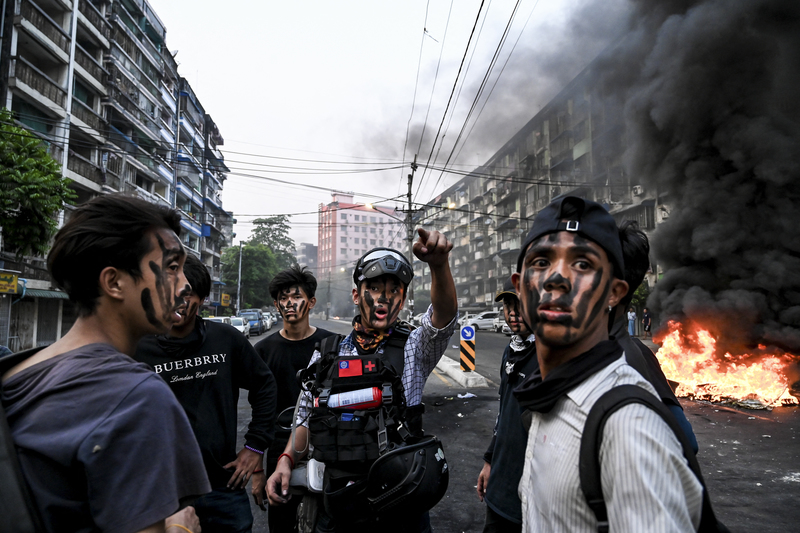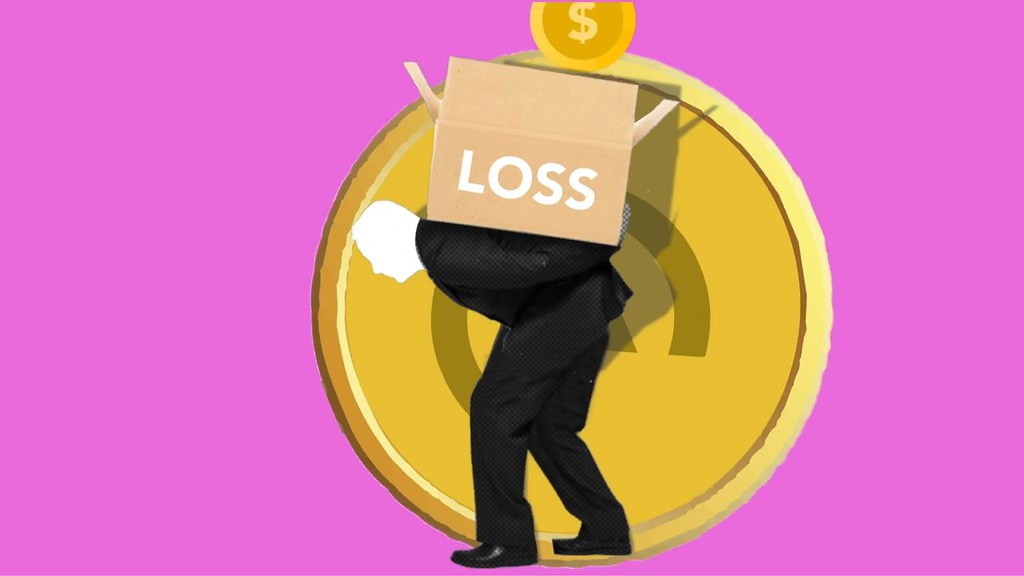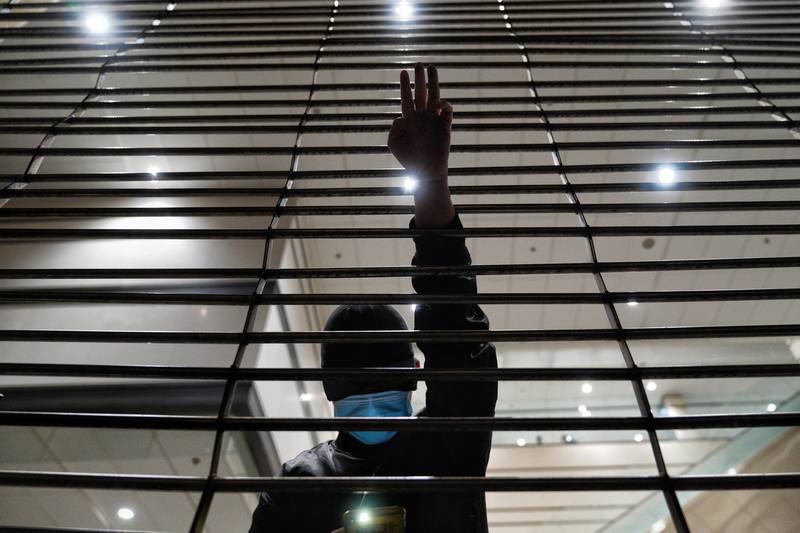Joshua Chen
Shared posts
South China Sea: The battle for Scarborough Shoal
Joshua ChenLaw that cannot be enforced is nonsense
王冠云/在西方主流媒體中長期消失的巴勒斯坦,這次會被看見嗎?
《理性》:印度教民族主義下,如何煉成一個迷你屠殺的時代
疫食之間(下):容易忽略的回收誤區 環署促紙餐具再利用 源頭減量再等等
煢影/一個外媒記者目睹的經濟陰暗面和「異鄉人」──讀《低端中國》
【疫苗解盲幕後】緊急授權標準最後一刻出爐,高端二期成功、聯亞月底揭曉,但得和AZ做療效PK
Joshua Chen整合每個疫苗的各項指標的順序成一個綜合判斷疫苗優劣的問題和 Arrow Impossibility Theorem 在數學邏輯上是一樣的結構
TL;DR 疫苗有效就用了,硬要 PK 是死路
https://www.academia.edu/2310163/An_Impossibility_Theorem_for_Amalgamating_Evidence
專訪緬甸平行政府:背負國民血淚尋求國際支持,誓與軍政府打持久戰
Joshua Chen截斷軍政府的金流
Global banking regulators call for toughest rules for cryptocurrencies
Joshua ChenThis regulation either forces the pegging between fiats and bitcoin or encourages chains with real peer-to-peer media-of-exchange capability in bitcoin.
Growth of crypto-assets threatens financial stability and could increase risks faced by banks, they warn
Global regulators have said cryptocurrencies such as bitcoin should come with the toughest bank capital rules to avoid putting the wider financial system at risk should their value collapse suddenly.
The Basel Committee on Banking Supervision, which consists of regulators from the world’s leading financial centres, is proposing a “new conservative prudential treatment” for crypto-assets that would force banks to put aside enough capital to cover 100% of potential losses.
Continue reading...Colonial Pipeline: US recovers most of ransom, justice department says
Joshua Chen> Perhaps deliberately, the DoJ are being vague about exactly how they did it
Because this success has nothing to do with bitcoin's security.
Israel-Gaza: How much money does Israel get from the US?
Joshua Chen報稅季節黑語錄:3.8bn 可以打很多疫苗,所以能逃稅就逃稅
一片土地,四種身分證──越洋採訪戰火中的巴勒斯坦人心聲
Joshua Chen重申以色列是一個「猶太人的國家」
配樂: 甘仕堡回憶童年諷刺納粹的 yellowstar https://www.bing.com/videos/search?q=yellowstar+gainsbourg&view=detail&mid=9A5F17657A31E50F55DD9A5F17657A31E50F55DD
Belarus 'diverts Ryanair flight to arrest journalist', opposition says
Long working hours killing 745,000 people a year, study finds
Joshua Chenpick one: die in fatigue, in hunger or in virus. "in the long run we are all dead" --WHO
Malawi burns thousands of expired AstraZeneca Covid-19 vaccine doses
Joshua Cheneconomic surplus loss by the left
Chinese dreams on Native American land: A tale of cannabis boom and bust
Grand Canyon lottery to kill bison gathers 45,000 entries
India Covid: Anger as Twitter ordered to remove critical virus posts
Central Bank Digital Currencies And The Orwellian New World Order
 |
submitted by /u/jmdugan [link] [comments] |
‘Black Swan’ Author Nassim Taleb Advises to Stay Out of Bitcoin, Citing No Link to Inflation or ‘Anything Economic’
Joshua ChenCore chain coin is not bitcoin. It is only one of the chains of the bitcoin who does not care the death of a chain, if any. What Taleb says is true for core chain coin.
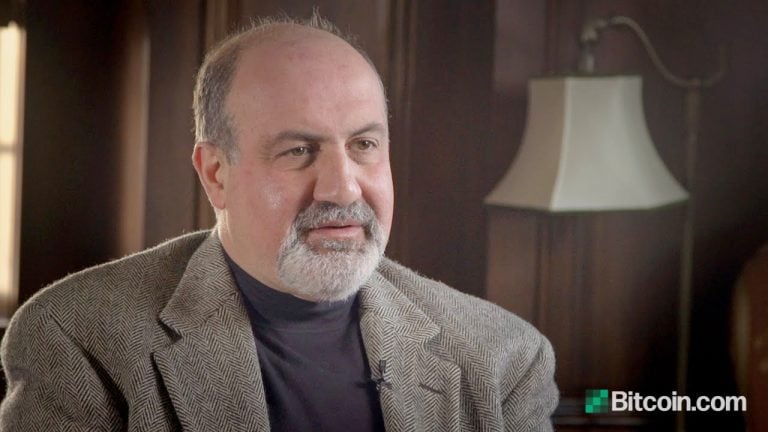
The famous author of The Black Swan, Nassim Nicholas Taleb, says investors should not buy bitcoin. To hedge against the current turbulent market, he advises buying stocks or real estate, emphasizing that bitcoin has no connection to inflation or “anything economic.”
Nassim Taleb Advises Against Bitcoin Investing
Nassim Nicholas Taleb, the famed author of “The Black Swan,” has shared his view on bitcoin and on how to hedge against the current turbulent market in an interview with CNBC Friday. Taleb is a Lebanese-American scholar, mathematical statistician, former options trader, and risk analyst.
He was asked about cryptocurrency, particularly bitcoin, given that investors have been increasingly restructuring their portfolios with this asset class. Regarding bitcoin, “It has the characteristics of an open Ponzi scheme. Everyone knows it’s a Ponzi,” he claims, adding:
Basically, there is no connection between inflation and bitcoin. None. You can have hyperinflation and bitcoin goes to zero. There is no link between them.
Admitting that bitcoin is “a beautifully set up cryptographic system,” Taleb insisted that “It’s well-made but there is absolutely no reason it should be linked to anything economic.”
“If you want to hedge against inflation, buy a piece of land,” he advised, adding that one can “grow olives on it. You’ll have olive oil.” He continued, “Of course, the best strategy for investors is to own things that produce yields in the future.”
While a number of analysts support Taleb’s theory that bitcoin is not an inflation hedge, some believe otherwise. Investment bank Goldman Sachs said in December last year that “bitcoin is the retail inflation hedge,” noting that it “is replacing gold as the inflation hedge of choice.” British investment management firm Ruffer wrote that bitcoin “acts as a hedge to some of the monetary and market risks that we see.” Deutsche Bank observed that there “seems to be an increasing demand to use bitcoin where gold used to be used to hedge dollar risk, inflation, and other things.”
Concluding Friday’s interview on how to hedge risk in today’s market, Taleb said:
Stay out of bitcoin. Buy stocks that are stable and buy things you understand.
He also reiterated that investors can also “Buy a piece of land” and grow something on it, like in his earlier olive example.
The famous author was initially a bitcoin proponent, believing that BTC can be used as a currency. However, when he saw that the price of bitcoin is very volatile and investors are using the cryptocurrency as a vehicle for speculation, he started selling off his bitcoin and began calling it a failed currency.
What do you think about Nassim Taleb’s advice about bitcoin? Let us know in the comments section below.
Jack Dorsey and Elon Musk agree on bitcoin's green credentials
Joshua ChenPeople just don't know what money and proof-of-work mean.
多國武肺主權債券藏氣候風險 《自然》期刊專家提醒三步驟避險
Joshua ChenScientifically false
How US history explains vaccine passport scepticism
Myanmar: Celebrity model arrested amid coup crackdown
Bridgewater’s Ray Dalio Warns Government Could Restrict Bitcoin Investments, Impose ‘Shocking’ Taxes
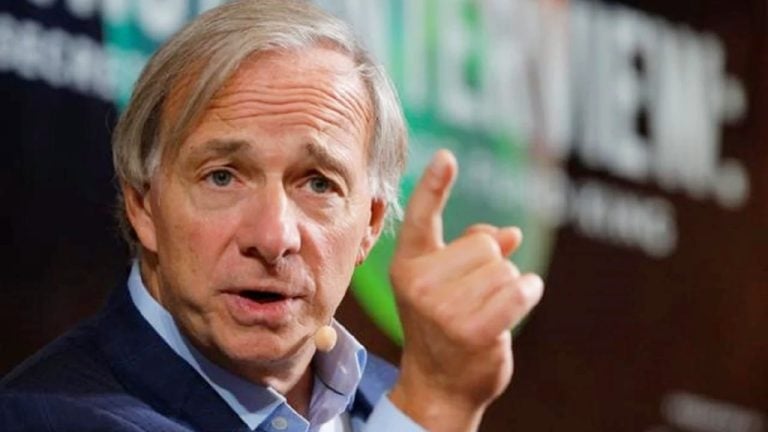
The founder and chief investment officer of Bridgewater Associates, the world’s largest hedge fund firm, has warned that the government could “impose prohibitions against capital movements” into assets such as bitcoin. He added that regulators may also impose changes in taxes that “could be more shocking than expected.”
Ray Dalio Warns About Government Prohibitions and Taxes
Ray Dalio, founder and chief investment officer of Bridgewater Associates, wrote a post on Linkedin last week entitled: “Why in the World Would You Own Bonds When…”
He pointed out that the bond markets currently offer “ridiculously low yields,” which “do not meet these asset holders’ funding needs.” The executive wrote, “There is now over $75 trillion of US debt assets of varying maturities,” adding that their holders will at some point want to sell them to get cash to buy goods and services with.
However, Bridgewater’s chief investment officer estimates that “at current valuations, there is way too much money in these financial assets for it to be a realistic expectation that any significant percentage of that bond money can be turned into cash and exchanged for goods and services.” He elaborated: “It has to be accommodated … via printing a lot of money and devaluing it, and restructuring a lot of debt and government finances, usually including large increases in taxes.”
Dalio explained: “Based both on how things have worked historically and what is happening now, I am confident that tax changes will also play an important role in driving capital flows to different investment assets and different locations, and those movements will influence market movements.”
The billionaire fund manager emphasized that “If history and logic are to be a guide, policymakers who are short of money will raise taxes and won’t like these capital movements out of debt assets and into other storehold of wealth assets and other tax domains,” warning:
They could very well impose prohibitions against capital movements to other assets (e.g., gold, bitcoin, etc.) and other locations. These tax changes could be more shocking than expected.
The Bridgewater Associates founder used Elizabeth Warren’s proposed wealth tax as an example, stating that it “is of an unprecedented size.” Citing his study of “wealth taxes in other countries at other times,” he expects this proposal “will most likely lead to more capital outflows and other moves to evade these taxes.”
Consequently, “The United States could become perceived as a place that is inhospitable to capitalism and capitalists,” Dalio opined, emphasizing that “the chances of a sizable wealth tax bill passing over the next few years are significant.” In conclusion, the Bridgewater executive cautioned:
One should be mindful of tax changes and the possibility of capital controls.
Dalio has been studying bitcoin over the recent months. In November last year, he admitted that he may be wrong about bitcoin but was nonetheless worried about governments outlawing cryptocurrency. In December, he said bitcoin could “serve as a diversifier to gold and other such storehold of wealth assets.” Then, in January this year, he said that “bitcoin is one hell of an invention,” revealing that his firm looking closely at the cryptocurrency.
What do you think about Ray Dalio’s warning? Let us know in the comments section below.
New FATF Guidance Applies Regulatory Standards to Decentralized Exchanges, Defi and NFTs

On March 19, the Financial Action Task Force (FATF) published draft guidance on the risk-based approach to virtual assets. The newly updated guidance now applies anti-money laundering and know-your-customer rules to stablecoins, decentralized finance (defi), and non-fungible token (NFT) assets.
FATF Defines Decentralized Exchanges and Defi as a Virtual Asset Service Providers
For a while now, cryptocurrency proponents have said that one day, global regulators would likely target decentralized finance (defi) and the latest non-fungible token (NFT) hype. For a while now, the Financial Action Task Force (FATF) has been trying to come up with a regulatory standard for cryptocurrencies businesses called a “virtual asset service provider” (VASP). Things like the FATF’s Travel Rule have always been controversial, but regulators from a number of countries have been adopting the organization’s guidance. Recently Gibraltar updated its guidance notes to align with the FATF rules and South Africa has been attempting the same.
The FATF’s latest guidance is merely an update of some of its past recommendations toward virtual assets (VA) and VASPs. However, the updated version now discusses stablecoins, defi, and NFTs, as things like decentralized exchanges (dex) are considered VASPs. The newly revised guidance suggests imposing anti-money laundering and know-your-customer (AML/KYC) rules toward dex applications. The FATF calls these platforms “Decentralized or distributed applications (dapp) or a platform that offers “exchange or transfer services.”
“A dapp, for example, is a term that refers to a software program that operates on a P2P network of computers running a blockchain protocol— a type of distributed public ledger that allows the development of other applications,” the latest guidelines note. “These applications or platforms are often run on a distributed ledger but still usually have a central party with some measure of involvement, such as creating and launching an asset, setting parameters, holding an administrative ‘key’ or collecting fees.”
The global regulator’s guidance adds:
Dapps can facilitate or conduct the exchange or transfer of [virtual assets].
‘The FATF Is No Stranger to Defi, Dex, and NFTs’
FATF’s latest guidance essentially defines a non-fungible token (NFT) as a VA as it defines a stablecoin. The latest guidance on NFT, defi, and stablecoins indicate that the FATF has noticed these emerging trends within the crypto space. Additionally, the FATF tweeted about the guidance and asked for commentary about the 99-page report. “The FATF wants to hear your views on draft guidance for taking a risk-based approach to virtual assets and virtual asset service providers,” the organization tweeted. “Relevant private sector stakeholders can take part in the public consultation.”
The report also touched upon VA transfers to and from unhosted wallets. “The FATF recognizes that unlike traditional fiat wire transfers, not every VA transfer may involve (or be book-ended by) two obliged entities,” the FATF guidance says. In instances in which a VA transfer involves only one obliged entity on either end of the transfer (e.g., when an ordering VASP or other obliged entity sends VAs on behalf of its customer, the originator, to a beneficiary that is not a customer of a beneficiary institution but rather an individual VA user who receives the VA transfer.”
Of course, the conversation about the FATF’s new definitions for defi, NFTs, stablecoins, dapps, and dex applications was a topical discussion on social media. “FATF ain’t no stranger to defi, dex & NFT,” Björn Godenrath tweeted. “Classification as a virtual asset service provider brings market participants into the scope of traditional money laundering regulations (if they can be identified),” he added.
What do you think about the FATF guidelines and definitions tied to defi and NFTs? Let us know what you think about this subject in the comments section below.





